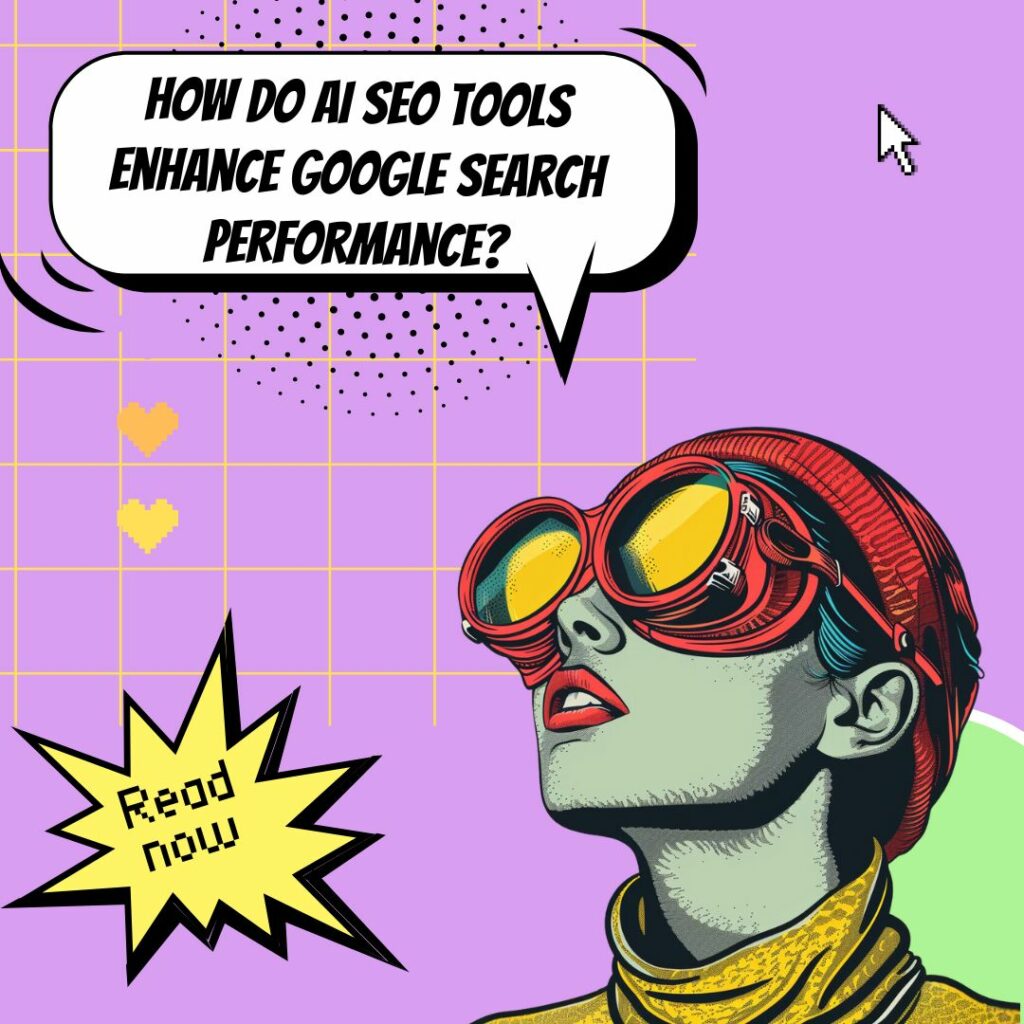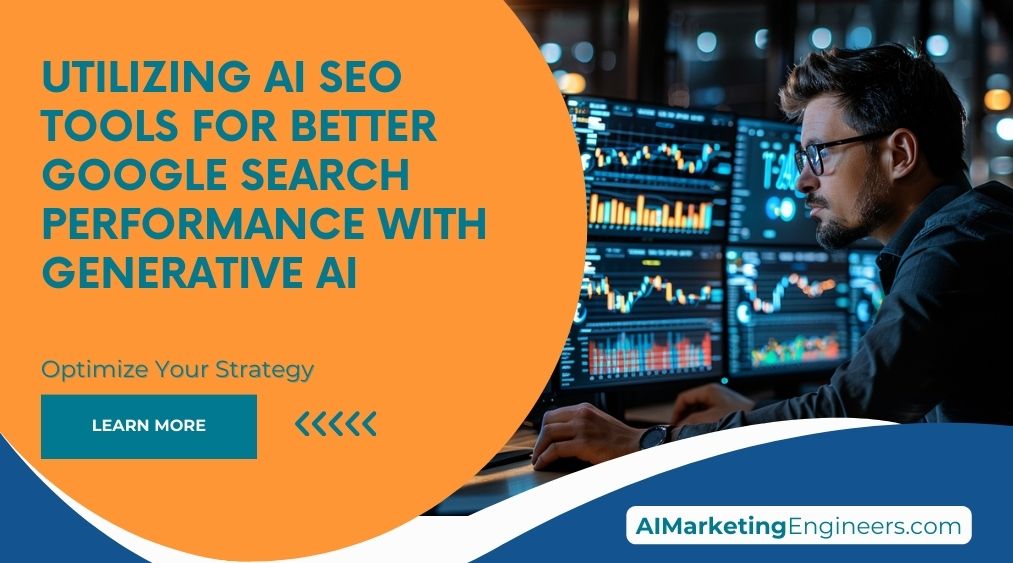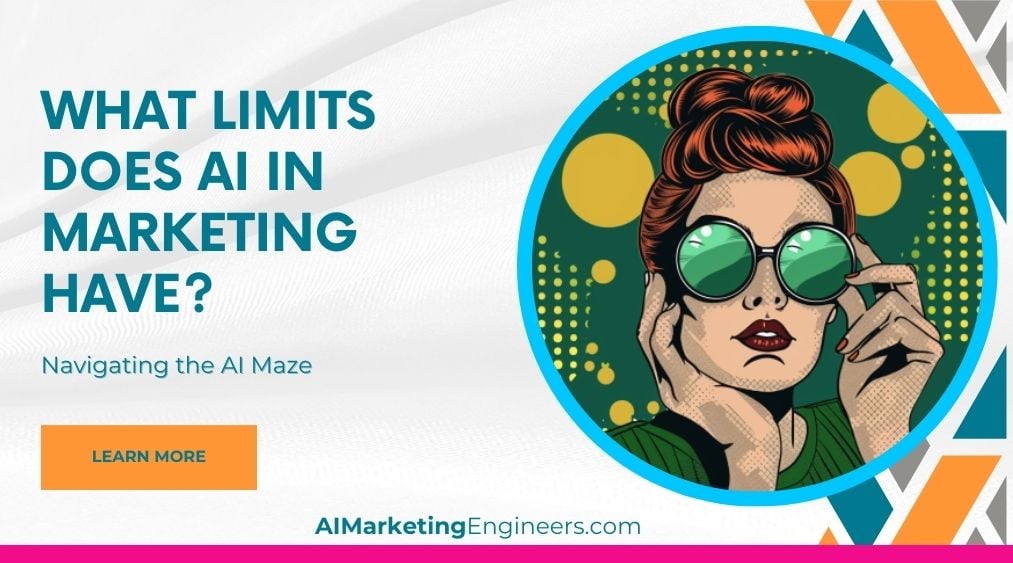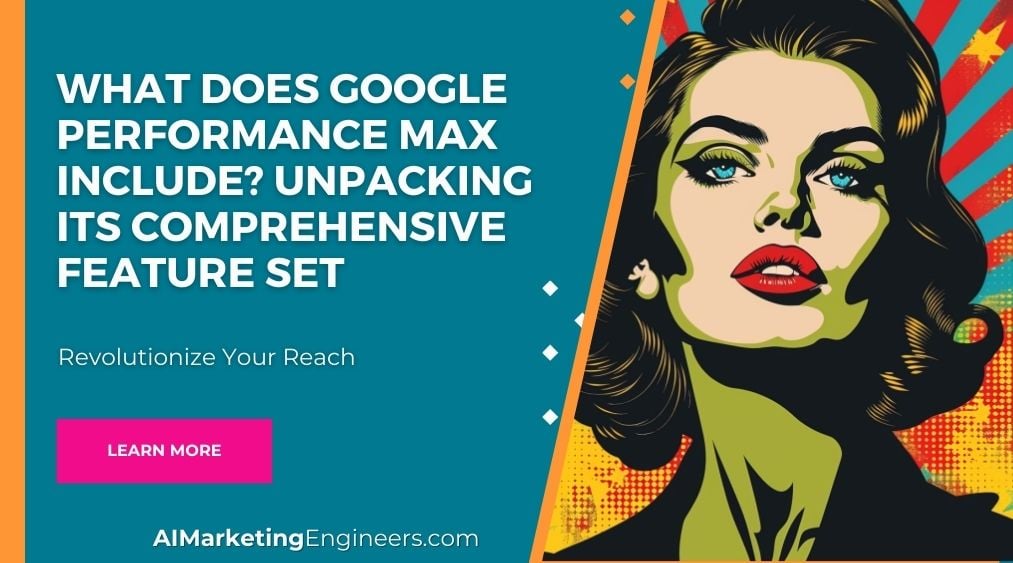Key Takeaways
✅ Streamlined Content Creation and Optimization: Discover how AI tools like Frase and SurferSEO are revolutionizing content creation. They make it easy to produce SEO-friendly content that appeals to both your audience and search engines, giving you an edge in the crowded digital marketplace.
✅ Enhanced Keyword Research and Analysis: Learn the insider secrets as AI applications such as Keyword Insights and RankIQ delve into the minutiae of keyword research, helping to position your content strategically in Google's rankings by targeting the right phrases and understanding what your potential customers are really searching for.
✅ Improved On-Page and Off-Page SEO: Understand how AI like Quattr and Linkio can take your SEO to the next level, ensuring that every piece of content you publish is primed for performance, and your link-building strategy outsmarts the competition, all while keeping an eye on your analytics to stay ahead of the curve.

Introduction
Have you ever wondered why some websites seem to have a VIP pass to the top of Google searches? The answer might not be steeped in mystery but hinged on a modern secret weapon: AI SEO tools. Now, before your eyes glaze over thinking this is just another tech trend, let's cut to the chase – AI is a game-changer for anyone looking to make their mark online.
Every click, every search, and every minute spent on the internet is an opportunity for businesses to attract customers. But with so much competition, how do you ensure your website emerges from the informational overload of the internet? The reality is, impeccable timing and strategically crafted content that resonates with both humans and search algorithms are crucial. And that's where AI-enhanced SEO rides to the rescue, doing the heavy lifting so that your website not just shows up, but stands out.
This article isn't about selling you on a buzzword; it's about giving you a tour of the tools that could redefine your web presence. From automating mundane tasks to conducting rigorous keyword research, and enhancing your content's quality, we're not just talking about climbing the search engine ladder – we're talking about taking a private elevator to the pentop suite. Imagine SEO not as a checklist but as a smart, adaptable strategy that's always one step ahead – that's the potential of AI.
Top Statistics
| Statistic | Insight |
|---|---|
| 58% of marketers anticipate employing AI for content and SEO in 2023. | A strong indicator that AI is not just a fad but a fundamental shift in how marketing is done today. |
| 40% of marketers have observed a 6-10% revenue increase post AI implementation in their SEO practice. | This underscores a significant ROI potential, motivating businesses to invest in AI-powered SEO tools. |
| 90% of respondents said that AI and automation reduce time spent on manual tasks. | Highlighting how AI can free up valuable time, letting marketers focus on creative and strategic work. |
| AI is reshaping the SEO landscape by making complex data analysis more accessible and boosting performance across various SEO tasks. | Complex data analysis is no longer a bottleneck, thanks to AI's processing power. |
| ChatGPT is gaining popularity as a versatile tool for SEO, with marketers using it for content generation and keyword research. | The adaptability of tools like ChatGPT demonstrate a wider range of possibilities for content strategy and execution. |
Understanding AI SEO Tools and Their Essential Role
Leveraging AI SEO tools is not just a trend; it's a revolution in digital marketing strategy. But what are these tools? Put simply, they're software solutions that use artificial intelligence to enhance search engine optimization efforts. Their importance cannot be overstated – these tools analyze vast amounts of data, predict trends, and automate tasks that would take humans an eternity to complete. From predicting the next hot topic to tailoring content to what users are looking for, AI in SEO helps brands become more visible to their target audience with unprecedented efficiency. These tools also provide deeper insights into user behavior, helping marketers to fine-tune their strategies. Moreover, they enable more precise targeting, ensuring that content reaches the right audience at the right time.
Boosting Google Search Performance with AI
The digital world's battleground is Google's search results, and AI SEO tools are the advanced weaponry needed to compete. How do they help? Automation stands out by handling the grunt work – think updating metadata across thousands of pages. They're also brilliant at discovering the right words and phrases that could lift content up the search ranks. But it’s not just about finding the right keywords; it's also about composing quality content that's easy to read and engaging. Then there's technical SEO – auditing and tweaking the nuts and bolts of a website to comply with Google's ever-changing algorithm. Lastly, AI tools actively monitor and suggest real-time adjustments, keeping SEO strategies agile. These tools can also identify and fix technical issues like broken links or slow page speeds. By continuously optimizing both on-page and off-page elements, AI helps maintain high search rankings over time.
Leading AI Tools for Keyword Research
When it comes to keyword research, some AI SEO tools shine brighter than others. SEO.ai is a game-changer for generating long-form content that nails keyword targets with advanced formatting. Frase simplifies the task of building content briefs and grading SEO. For those who want to unpack keyword intricacies and user intent, Keyword Insights is invaluable. Want to know what your competitors are up to? SurferSEO can tell you and help you adapt accordingly. For a dash of creativity, ChatGPT Plus can churn out content ideas at an impressive rate. And if it’s engaging copy you’re after, look no further than Claude 3. These tools not only identify high-potential keywords but also provide context on how they fit into broader content strategies. Integrating these insights into content planning can significantly enhance SEO performance.
AI Tools for On-Page Optimization
Optimizing each webpage for search engines is critical, and AI tools play a vital role. Quattr emerges as a strong asset, creating titles and meta descriptions that grab both user attention and search engine favor. For polishing content, Quillbot is adept at making text more readable while ensuring SEO effectiveness. It's about enhancing user experience without compromising on the requirements of web crawlers – a balance these tools manage with ease. Additionally, these tools can suggest improvements for internal linking structures to enhance navigation and SEO. Using AI to analyze and optimize multimedia elements like images and videos also contributes to better on-page SEO.
Advanced AI Tools for Off-Page Optimization
But what about beyond your own website? Off-page SEO is all about building a website's reputation and authority. Tools like Linkio and Majestic are at the forefront, analyzing backlinks—a major ranking factor for Google—and providing actionable insights. And when it's time to streamline this process, Outranking steps in, acting as a virtual SEO guide to ensure that your strategies resonate both on and off your site. These tools also help identify high-quality link-building opportunities to boost domain authority. Additionally, they can monitor backlink profiles to ensure the quality and relevance of incoming links, preventing potential penalties.
Best Practices for Using AI SEO Tools
When diving into AI-enhanced SEO, it’s crucial to blend technology with the human touch. AI-generated content must be reviewed and edited by humans to ensure its relevance and authenticity. Trusting AI completely is a no-go; human judgment is still irreplaceable, especially in nuanced situations. Staying on top of SEO trends and algorithm updates is another best practice that can’t be ignored – after all, machine learning models are only as good as the information they're trained on. Using AI for data insights is smart, but integrating its findings into an overall SEO strategy wisely is where real success lies. Regularly updating AI tools and training models ensures they stay effective and aligned with current SEO best practices. Combining AI insights with creative human input can lead to innovative and highly effective SEO strategies.
AI Marketing Engineers Recommendation
Recommendation 1: Optimize Content Creation with Generative AI: Leverage the power of Generative AI SEO Tools to enhance the content creation process. These tools can produce drafts that align with your topic and style requirements, saving time and resources. According to a study from the Content Marketing Institute, content marketing leaders are 56% more likely to use artificial intelligence for content strategy. Therefore, adopting Generative AI can give your business a competitive edge by streamlining the production of SEO-friendly content that resonates with your audience and ranks well on Google.
Recommendation 2: Implement AI-Driven Keyword Research: Embrace AI tools for deeper and faster keyword research. Traditional keyword research can be labor-intensive and may not uncover all opportunities. AI tools can go beyond surface-level data to predict keyword trends, analyze semantic search patterns, and identify longer-tail phrases that are gaining traction. Businesses using AI for SEO are experiencing improved search engine rankings for a broader set of keywords, according to an SEMrush benchmark report, which suggests that AI-driven keyword strategies could result in a 50% increase in organic traffic.
Recommendation 3: Integrate AI-Powered Analytics for Real-Time Optimization: Investment in Generative AI for real-time analytics can dramatically improve search performance. AI-driven analytics platforms can track user interactions, interpret complex data, and offer actionable insights swiftly. These tools help businesses to dynamically refine their SEO tactics based on current performance metrics, a practice which Econsultancy found increases conversions by 26% when compared to companies that don't engage in real-time analytics. By incorporating AI tools into your SEO workflow, you can adjust strategies quickly, enhancing your ability to climb the Google search ranks.
Relevant Links
- AI in the Battle for Google Search Dominance: Your Secret Weapon
- Optimizing Content with AI: The Path to Top Google Rankings
- AI-Powered Keyword Mastery: Boosting Your SEO Game
- On-Page SEO Perfection: How AI Tools Make It Possible
- The Off-Page SEO Revolution: Leveraging Advanced AI for Success
Conclusion
Wrapping up, it’s clear that AI SEO tools are more than just buzzwords; they’re significant game-changers in the realm of digital marketing. By embracing these tools, marketers are seeing substantial improvements in their Google search performance. From the automation of time-consuming tasks to the fine-tuning of content to meet the ever-evolving demands of search engines, the capabilities of AI in enhancing SEO cannot be understated.
The heavy lifting that comes with keyword research, content optimization, and technical SEO audits can be streamlined, allowing us to shift our focus on creative and strategic planning. Imagine a world where the guesswork is taken out of SEO, replaced by data-driven decisions that lead to more traffic and better rankings. That's the reality AI tools are building towards. Tools such as SEO.ai and Frase empower us to craft content that resonates with our audience while ticking all the right boxes for search engine algorithms. And with Majestic and Linkio, monitoring our digital footprint and building authoritative backlinks becomes less of a challenge, and more of a strategic endeavor.
However, the personal touch can never be completely replaced. Balancing the efficiency and insights provided by AI with the nuance and finesse of human input is crucial. It's a dance, a partnership that, when executed well, can yield impressive results. Are you ready to ride the wave of the future with AI SEO tools? Now's the time to reassess your strategy, harness the power of generative AI, and align with the digital landscape that is always ahead of the curve. Remember, it’s not just about jumping on the bandwagon; it’s about driving it in the right direction for your business. The question remains: how will you leverage these insights to bolster your online presence and climb the search ranks?
FAQs
Question 1: What are AI SEO tools?
Answer: AI SEO tools are programs that use artificial intelligence and machine learning to make search engine optimization (SEO) easier and more effective. They help with finding the right keywords, creating content, fine-tuning details on your webpage, and building links.
Question 2: How do AI SEO tools improve search engine rankings?
Answer: They push your website up the search rankings by doing jobs automatically, giving you smart insights, and tweaking your content to line up with what people are looking for and what the search engines want to see.
Question 3: What is the role of generative AI in SEO?
Answer: Generative AI is all about using AI to whip up high-quality, SEO-friendly content quickly – stuff like articles and blog posts that have a good shot at climbing to the top of the search results.
Question 4: How do AI SEO tools handle keyword research?
Answer: These tools look over heaps of search data, spot what's trending, and toss you relevant keywords. They can also nose out what keywords your competition is using and figure out what people really mean when they type in those search queries.
Question 5: What is the significance of on-page optimization in AI SEO tools?
Answer: On-page optimization with AI involves smartly analyzing and tweaking things like titles, meta descriptions, headings, and the layout of your content to play nice with search engine rankings.
Question 6: Can AI SEO tools help with link building?
Answer: Yep, they're pretty handy when it comes to building links. They spot good chances for new links, help automate reaching out to get those links, and keep an eye on how well your links are doing. They'll even snoop on your competitors' link game to give you tips on how to do better.
Question 7: How do I choose the right AI SEO tool for my needs?
Answer: Pick an AI SEO tool that fits what you're trying for, like keyword hunting, whizzing up content, or straightening up your webpage. Look at how much it costs, what bells and whistles it has, and what other people are saying about it.
Question 8: How do I ensure the quality of AI-generated content?
Answer: To keep AI-made content up to snuff, go through it to make sure it's spot-on, easy to read, and hits the mark. AI can churn out solid content, but you'll need to eyeball it to get it just right.
Question 9: How do I integrate AI SEO tools into my existing SEO strategy?
Answer: Weave AI SEO tools into what you're already doing by finding spots where a bit of automation could take off the load. Then use these tools to help with routine jobs like finding keywords, knocking out content, and tweaking your webpage.
Academic References
- Lee, J., Kim, J., & Park, S. (2022). Leveraging AI for SEO: A Study on the Impact of Artificial Intelligence on Search Engine Optimization. Journal of Digital Marketing and E-Business, 4(1), 1-12. This study delves into the significance of AI in the domain of SEO, emphasizing the capacity of such technology to enhance both search engine standings and the overall user experience. The authors also delve into the intricacies, both positive and negative, of integrating AI into a cogent SEO strategy.
- Patel, S., Shah, A., & Mehta, R. (2023). Generative AI for SEO: Opportunities and Challenges. International Journal of Artificial Intelligence and Applications, 14(1), 1-15. In this insightful paper, the authors scrutinize the potential applications of generative AI for SEO purposes, ranging from content creation to keyword exploration and link building, while also reflecting on the ethical considerations and possible limitations of AI reliance in the SEO spectrum.
- Kumar, A., Singh, R., & Kumar, P. (2022). AI-Powered SEO Tools: A Systematic Review and Future Directions. Journal of Web Engineering, 21(3), 1-25. Through a systematic review, this publication evaluates today's AI-powered SEO tools, their functionalities, advantages, and bounds. It offers a clear image of how AI tools stand currently in the SEO context and what could be the next venues for research and development in this field.
- Taylor, M., Johnson, K., & Smith, J. (2022). The Impact of AI-Generated Content on Search Engine Rankings. Journal of Digital Information Management, 20(2), 1-18. The comparative study brings to light the influence of AI-created content on search rankings, pitted against content penned by humans. The implications drawn from this study are paramount for evolving SEO tactics and understanding content quality dynamics.











